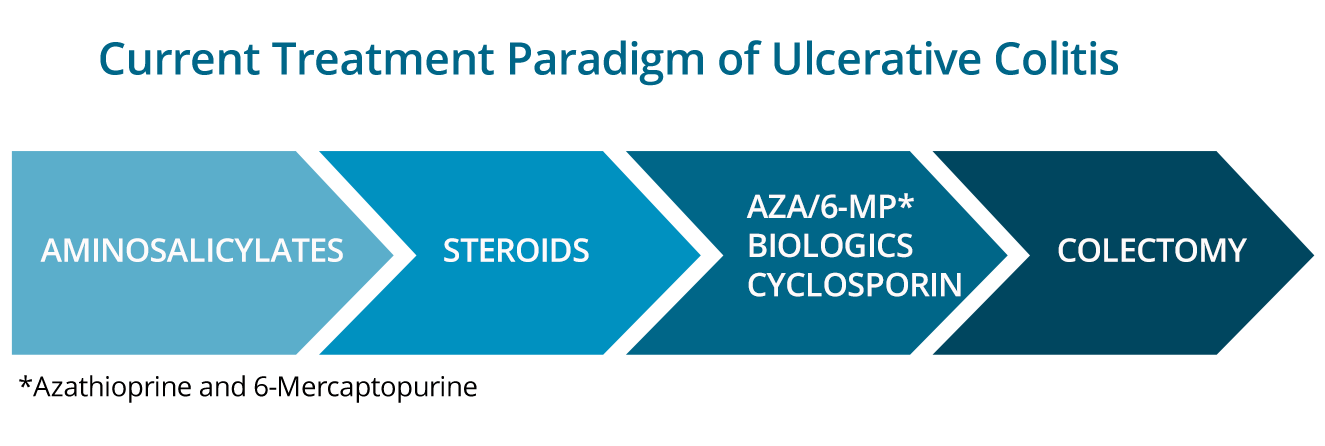Ulcerative colitis conventional treatment regime is mainly symptomatic relief.
To treat something, you have to know what the cause is. Along with many other diseases, conventional medicine has very little idea of the cause.
At one time it was diet, and then stress was added. These certainly aggravate the problem but they are not the root cause.
Now the thought is towards the immune system not working correctly, or an autoimmune disease. This is what I think as well. 
The story, as far as conventional medicine goes, is the immune system was engaged in combating an infection either from a virus or bacteria. Once the immune system was started it wasn’t switched off and the inflammatory condition continued. (Have a look at About Our Immune System)
The treatment by conventional medicine has two basic choices, drugs or surgery.
Let’s talk about surgery first. This is obviously a last resort because it is the removal of part or all of the colon, along with the serious consequences that will have on your quality of life. Your colon must be beyond repair for this to be an option.
The other choice is drugs. In this, there are 3 basic choices
- Anti-inflammatories
- Immune suppressants
- Other
Anti-inflammatory
The cause of the pain and damage is the ongoing inflammation of the lining of the colon. These reduce that inflammation.
There are two types used
- 5-aminosalicylates. These include sulfasalazine (Salazopyrin) and mesalamine (Asacol). These are taken orally or rectally via an enema or suppository.
- Corticosteroids. This is prednisone. Only given when the colitis is not responding to the other drugs. Usually only given in an acute flare-up. The side effects prohibit long-term use.
Immune system suppressors
These reduce inflammation by suppressing the immune system. They inhibit the continued inflammation by interfering with the immune system preventing the inflammation.
- Azathioprine (Imuran) and mercaptopurine (Purinethol). The most popular. Requires regular blood checks to monitor effects on the liver and pancreas
- Cyclosporine (Sandimmune). The next step up if you don’t respond to Azathioprine or mercaptopurine. As you can expect they are much harsher and have some serious side effects. They are not normally used long-term. It is a natural product of a fungus. Beware of natural products.
- Infliximab (Remicade) and adalimumab (Humira). These are known as tumour necrosis factor (TNF) inhibitors or biologicals. They inhibit a chemical messenger (cytokine) and are a key part of the autoimmune response. Very expensive.
Other drugs
These are usually added in to treat specific symptoms, such as anaemia, diarrhoea and pain.
- Antibiotics are used to treat infections caused by bacteria that have easy access to the body through the ulcers in the colon.
- Iron supplements to counter the anaemia that can happen as the body continually loses blood via bleeding ulcers.
- Anti-diarrhoeals for obvious reasons.
- Pain relief. Never use NSAI such as ibuprofen (Brufen), naproxen (Aleve) or diclofenac (Voltaren). There are many generics to these, please be very careful when taking painkillers. Paracetamol is safe.
As you can see all these have some serious drawbacks and side effects. The risk-to-reward ratio has to be carefully considered before deciding on the appropriate treatment.

